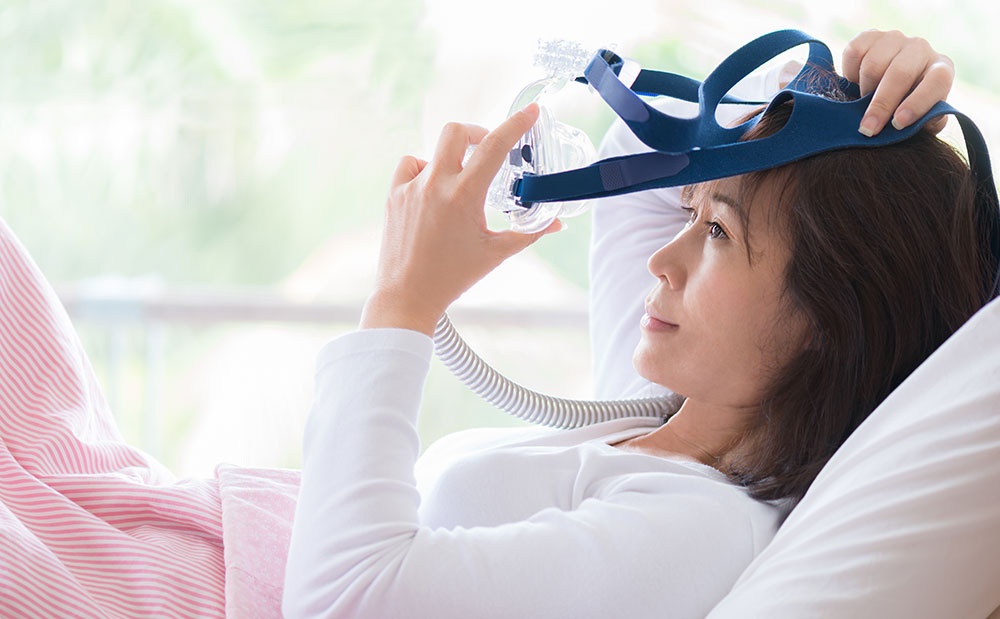
If you or someone you love suffers from obstructive sleep apnea (OSA), you know all too well how the sleep disorder can disrupt your quality of life with the loud snoring and bulky CPAP devices. Now there’s hope for a new, simpler sleep apnea medication.
Recent research has discovered that the weight-loss and diabetes drug, tirzepatide, could help treat obstructive sleep apnea symptoms in people with obesity, according to a study published in the New England Journal of Medicine. (1)
The Potential Sleep Apnea Drug
The drug is sold by Eli Lilly under the common name, Zepbound.
Eli Lilly funded the study in hopes of expanding the drug’s use to treat moderate to severe sleep apnea. It would be the first drug to directly treat sleep apnea if approved by the Food and Drug Administration (FDA).
“Addressing this unmet need head-on is critical, and while there are pharmaceutical treatments for the excessive sleepiness associated with OSA, tirzepatide has the potential to be the first pharmaceutical treatment for the underlying disease,” said Jeff Emmick, MD, Ph.D., senior vice president of product development at Lilly in a press release.
This comes as big news considering that OSA, a serious condition where you briefly stop and start breathing in your sleep, affects many Americans.
“OSA impacts 80 million adults in the U.S., with more than 20 million living with moderate-to-severe OSA,” added Emmick.
As a result, pharmaceutical companies have been scrambling to find a potential medication to treat the common, yet serious disorder.
The Study’s Findings
The study involved over 400 people who had been diagnosed with sleep apnea and obesity. Half of those took a weekly injection of Zepbound (tirzepatide) and the other half were given a placebo medication.
According to the study, patients with obesity who took a weekly injection of tirzepatide over the course of a year saw an almost 60 percent decrease in their OSA symptoms.
Those who took the drug also reported that they slept better with fewer disturbances each night.
Not only that, but those patients who took the drug lost between 18 and 20 percent of their body weight. (1)
I know what you’re thinking, how does weight loss relate to sleep apnea?
While weight loss may seem irrelevant to treating OSA, adults with obesity are actually more likely to develop sleep apnea.
Excess fatty tissue around the neck can block the airways while you sleep. So, weight loss can help reduce potential blocked airways, making it easier to breathe while sleeping. (2)
It is important to note that simply losing weight alone is not a direct treatment for OSA. However, studies have shown that weight loss can help significantly reduce the severity of OSA.
What Does It Mean For the Future of OSA Treatment?
There’s still a bit of time though before the drug is cleared to help treat sleep apnea.
Eli Lilly recently filed a request to the FDA to expand the use of Zepbound to also include treatment of OSA. However, the approval would most likely not take place until the end of this year.
If approved, it would be the first drug specifically approved to treat OSA. It would also provide another treatment option for the millions of those suffering from the sleep disorder.
However, researchers have acknowledged the limitations of the study.
They say there is much more research needed to be done to explore if the drug would help those who are not obese. (1)
In the meantime, there are a couple of other options for those looking to improve their sleep apnea symptoms.
The most common form of treatment right now involves using a CPAP machine to help keep airways open while you sleep.
There are a couple of other non-CPAP options such as avoiding sleeping on your back, using oral or tongue-retaining appliances, and even surgery in some cases.
There’s also been talk of a potential “magic pill” and nasal spray that are in development to help treat sleep apnea, but they’re still in the early stages.
While they can be effective, so far most of these options are often uncomfortable and make it difficult to get comfy for a good night’s sleep.
I wouldn’t go tossing out the CPAP machine just yet, but there’s hope for a simple sleep apnea medication in the next couple of years.
Sources
- Malhotra A, Grunstein RR, Fietze I, et al. Tirzepatide for the Treatment of Obstructive Sleep Apnea and Obesity. New England Journal of Medicine. Published online June 21, 2024. doi:https://doi.org/10.1056/nejmoa2404881
2. Jehan S, Zizi F, Pandi-Perumal SR, et al. Obstructive Sleep Apnea and Obesity: Implications for Public Health. Sleep medicine and disorders : international journal. 2017;1(4). https://www.ncbi.nlm.nih.gov/pmc/articles/PMC5836788/